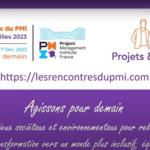Structuring
The issues likely to be addressed annually by RELEXT are those selected by the RELEXT coordination team. They address contemporary issues in the extraction of mineral resources, in their scientific, professional and social dimensions. These issues highlight the challenges facing the extractive industries, such as those linked to decarbonization (ecological transition), sustainable development, social and environmental issues, quality management, economic and governance issues, human rights, conflicts, corruption, tax evasion and illicit flows. To consult the list of the forty or so probable files already selected, please refer to the document List of possible files or themes, attached.
All the sections leave room for analysis by experts in the field and academics. The contents of each biannual issue of RELEXT, regardless of the issue or (thematic) dossier addressed, comprise 4 sections covering all the environmental, societal and economic issues associated with the extractive industries from the standpoint of sustainable development, quality management and ecological transition:
– The “societatis“is the forum devoted to analyses of all social and societal challenges and issues in the broadest sense (social and human rights, health, extraction-related conflicts, etc.). It gives legal experts the opportunity to analyze the lex sociatatis for extractive activities, and grants analyses and commentaries from other social sciences, such as sociology, anthropology, management and culturology, particularly in terms of conflicts between extraction stakeholders (for example, conflicts between industries and indigenous communities living near extraction sites), employment, safety, etc.
– The ” environementalis ” section covers all the contemporary environmental challenges and issues associated with extractive activities and fossil fuels. It is the forum for ecological transition, mining decarbonization, “duty of care”, projects described as “climate bombs”, marker policies, close links between mining and fossil fuels, etc. It is the preferred forum for NGOs and other professionals in the extractive sector.
– The ” Varia-doc-Actu ” section features social science publications on the extractive sector value chain, unpublished manuscripts, source texts, tickets, iconographic documents or translations with no thematic constraints. This section also includes reviews of new publications (theses and books), short notes, reading notes and conference/workshop reports directly related to RELEXT’s editorial policy. The section also features a kind of newsletter to keep you up to date with the latest scientific news and other useful (major) information, such as the publication of books or public policies directly related to RELEXT’s editorial policy. To consult the criteria on the volume and writing of articles, please refer to section VI.5 (Quality rules on form) below.




